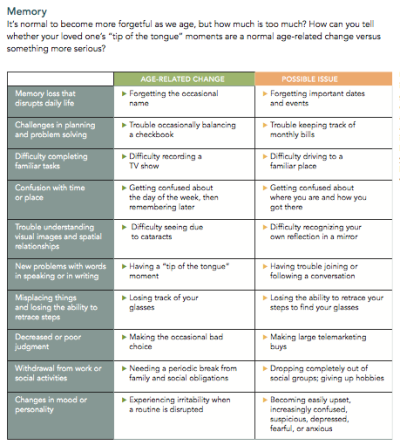I was looking at a publication sent out by Fidelity recently and found this table quite interesting.
I suppose I'm one of the old codgers here (but I was an early retiree, honest!), so this might not be interesting to many, but I thought it was very well done. It came from the Alzheimer's Association, and attempts to show the difference between memory issues caused by normal aging and those we should be actually concerned about.
Whether you're encountering any of this yourself, or just have friends or family who might be running into these issues, it's probably good to at least know that there are definite differences.
I suppose I'm one of the old codgers here (but I was an early retiree, honest!), so this might not be interesting to many, but I thought it was very well done. It came from the Alzheimer's Association, and attempts to show the difference between memory issues caused by normal aging and those we should be actually concerned about.
Whether you're encountering any of this yourself, or just have friends or family who might be running into these issues, it's probably good to at least know that there are definite differences.


